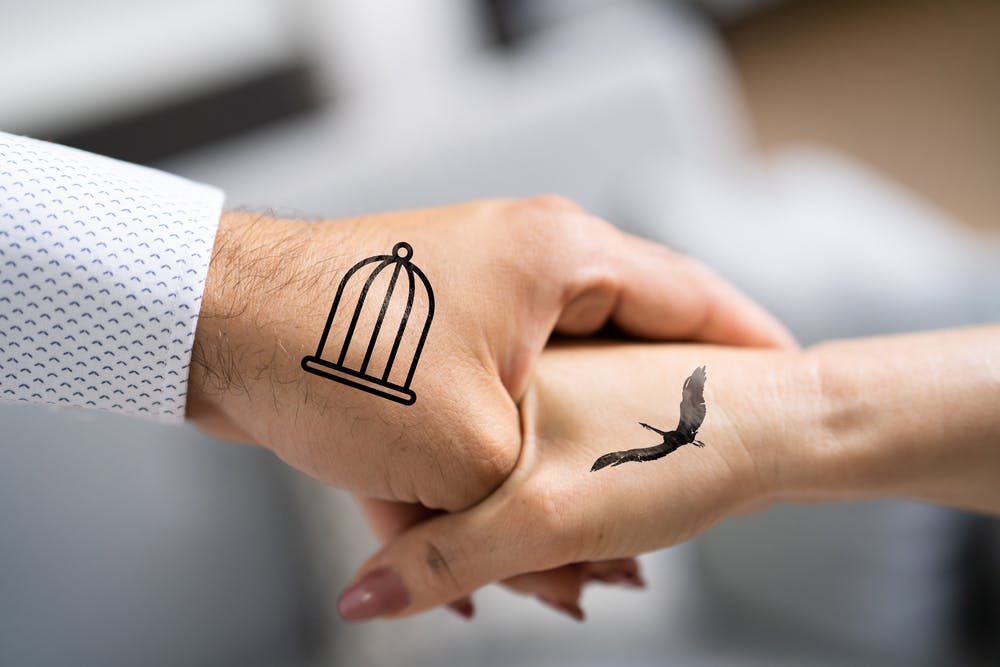Codependency in active addiction is the mortal enemy of recovery. Reliance on others for your self-worth, financial security, and mental health is a recipe for disaster, especially when substance abuse becomes part of the equation. Codependency leaves us vulnerable to malicious and manipulative people who seek to take advantage of that susceptibility.
Codependent relationships between two people trapped in active addiction only serves to perpetuate suffering in both. Breaking that cycle of codependency and addiction is critical to building a strong, healthy future.

Identifying Signs Of Codependency
Codependence can be hard to recognize in yourself. From the inside, it feels like love, commitment, passion. Toxic, codependent behaviors are not the same and can lead to serious, potentially dangerous situations if left unchecked.
Remember that codependence is not limited to romantic relationships, either. It can appear in families and friendships, too, resulting in enabling behaviors that feed addiction.
If you recognize any of the following signs of codependency, it may be time to re-evaluate your relationships:
- Your views of yourself and your worth are dependent on your relationships with other people. Being alone makes you feel unattractive, worthless, or abandoned.
- You constantly place priority on others’ feelings, even to the point of inconveniencing or mentally harming yourself.
- You are eager to please in order to prove yourself worthy of their attention and companionship. The idea of disappointing them or not meeting their needs causes you anxiety, guilt, or shame.
- You lack healthy boundaries when it comes to privacy, finances, other relationships, etc.
- You don’t feel comfortable or safe expressing your own views and ideas in fear of upsetting your partner. You feel obligated to apologize and submit when there are disagreements.
- Difficulty being emotionally vulnerable for fear of judgement or antagonizing arguments.
Overcoming Codependency In Addiction Recovery
Addiction recovery is all about breaking toxic bonds and replacing them with positive life skills and coping mechanisms. When it comes to codependent relationships, that means helping you move on from toxicity and build healthier relationships moving forward.
This means learning to put yourself as a priority, forming and enforcing boundaries, and knowing when to walk away. While it is entirely possible to restructure a toxic, codependent relationship into a mutually supportive, healthy one, we must be prepared to make the best decisions for ourselves.
Just as addiction counseling helps you uncover the roots your substance abuse disorder, therapy can also help you uproot the origins of codependency and mend those wounds.
Like all other lifestyle changes, learning to let go of codependent behaviors and become self-reliant takes time and daily effort. Begin today with small steps that will benefit you and your ongoing recovery.

